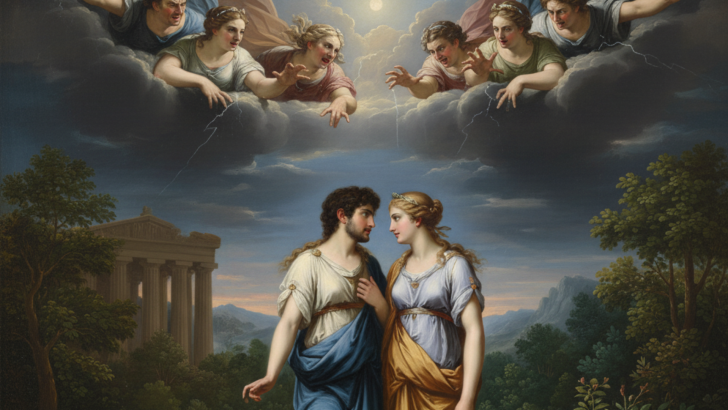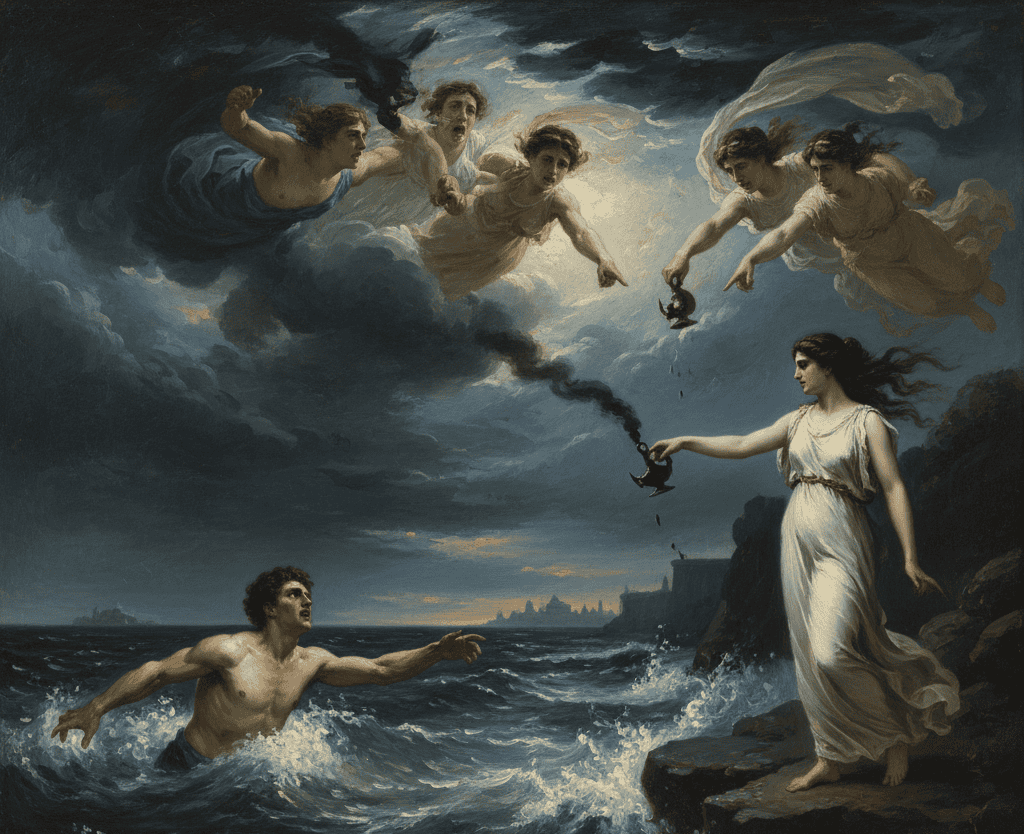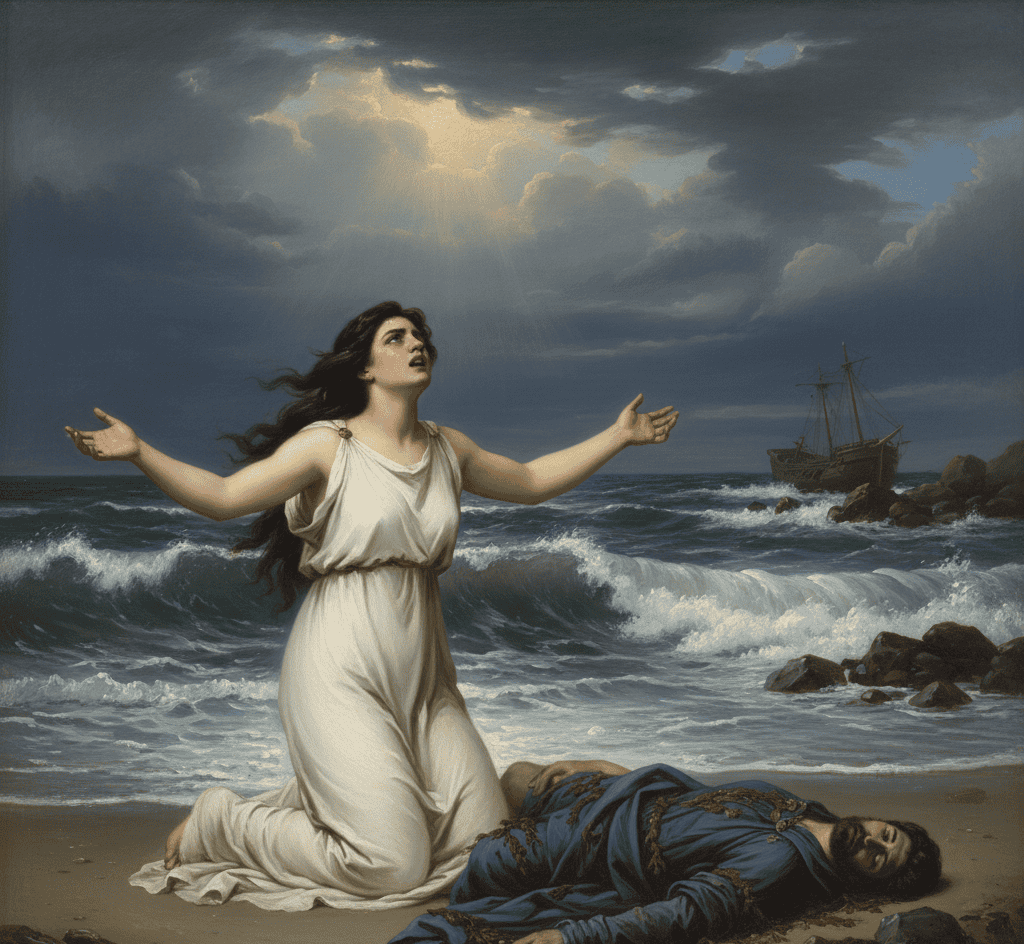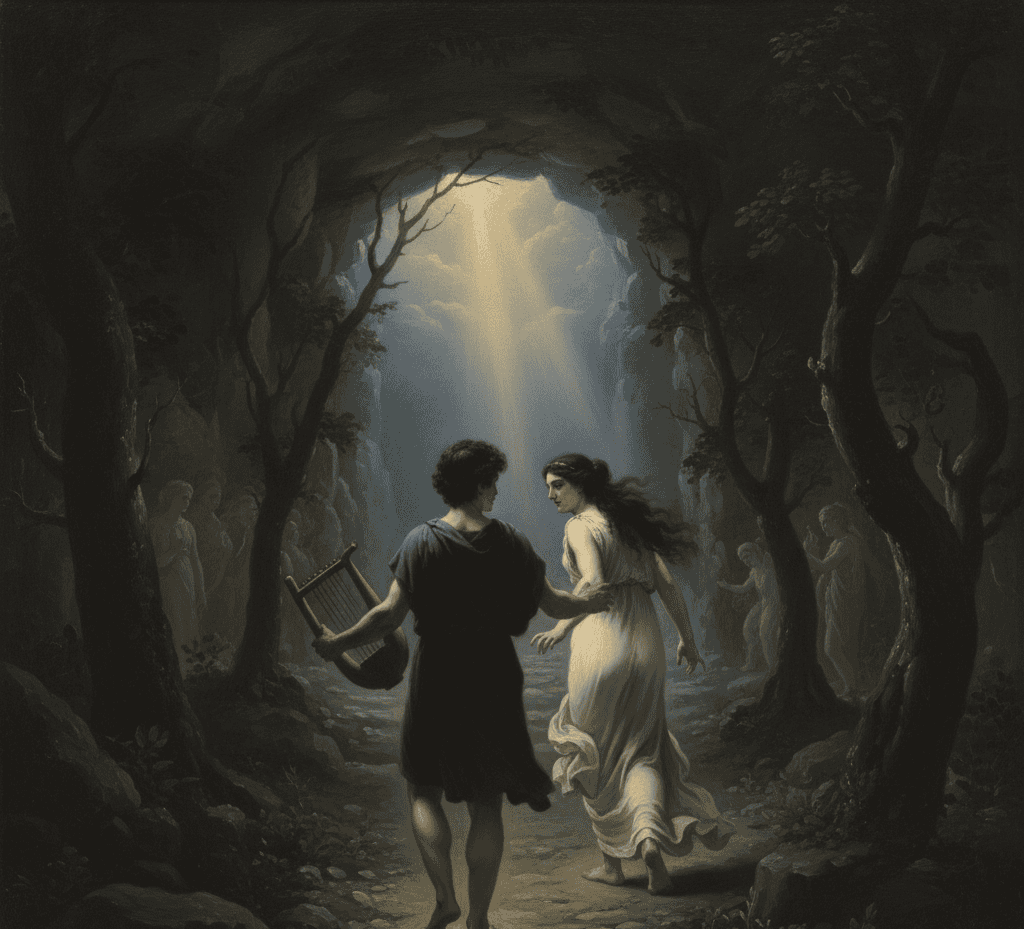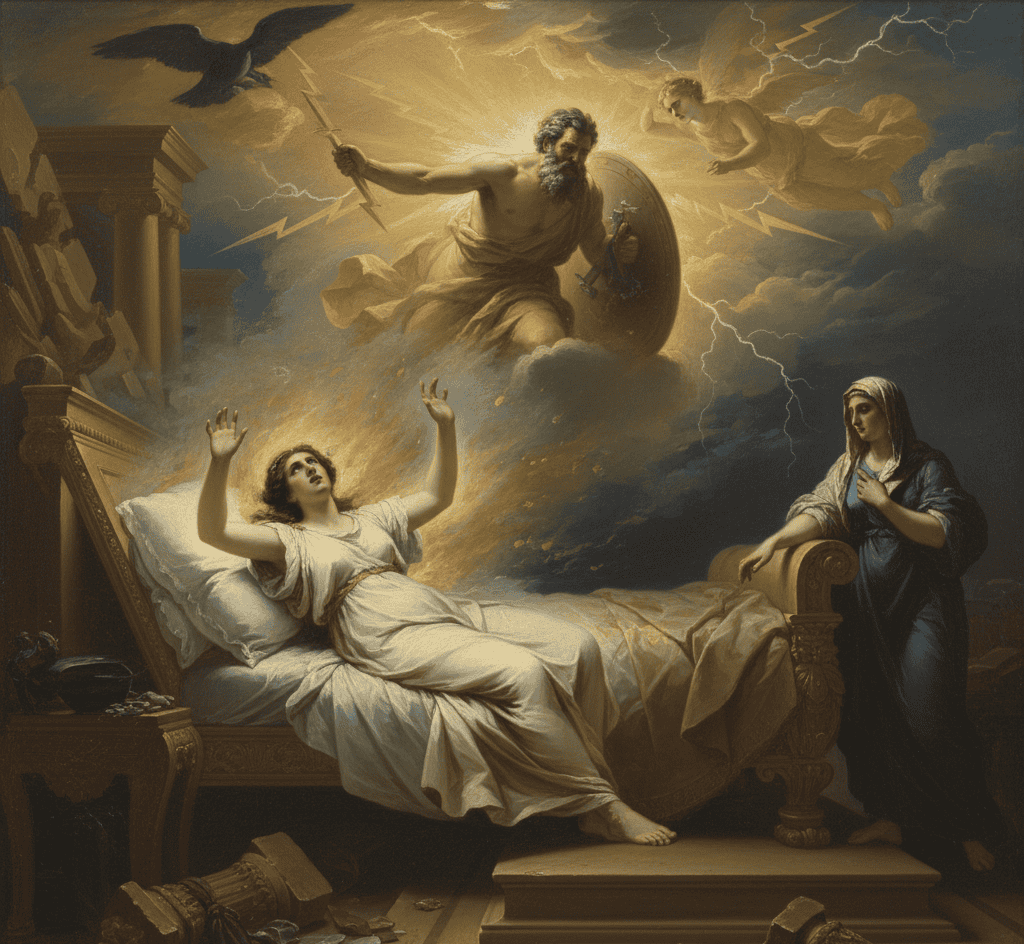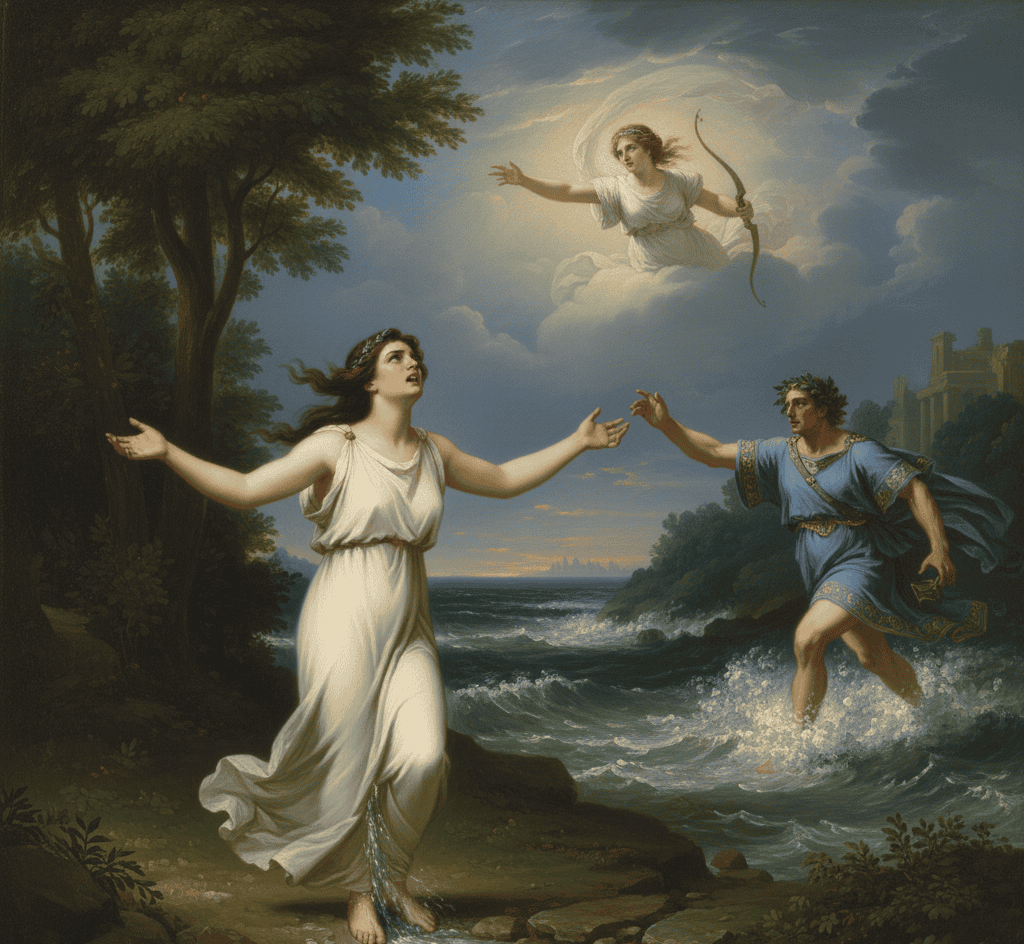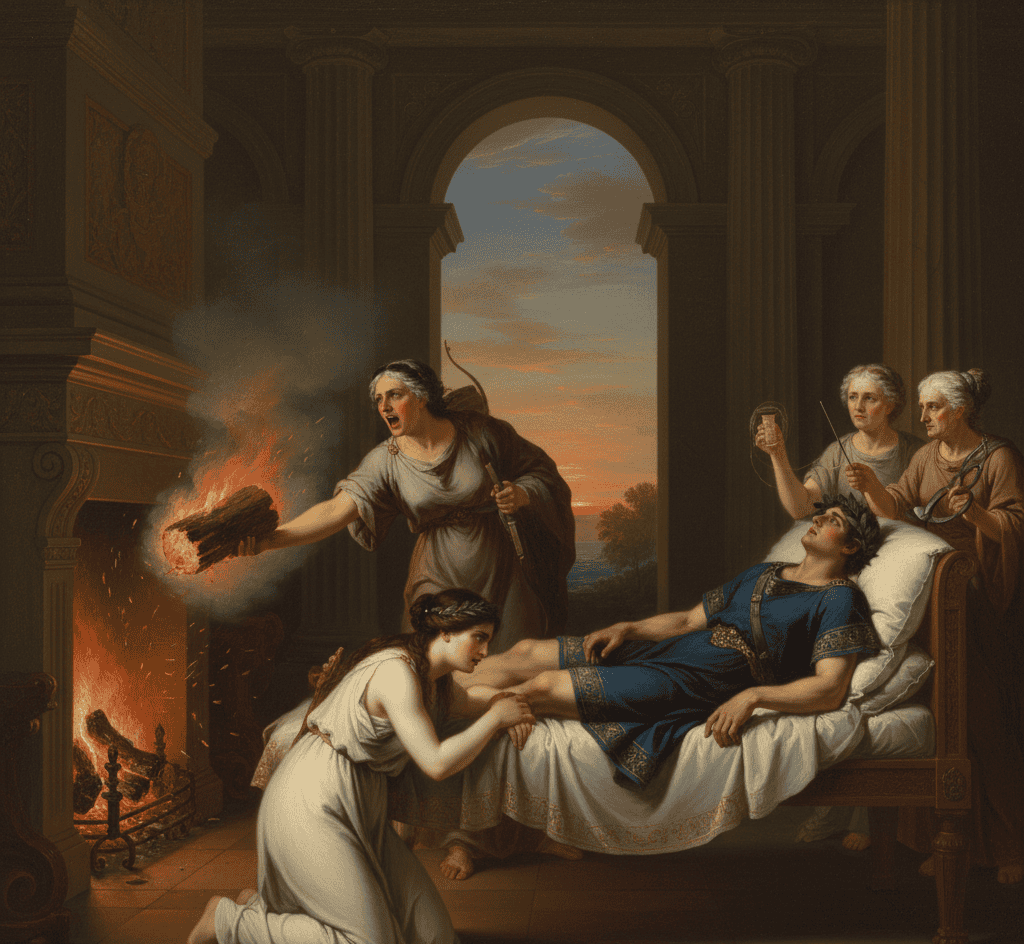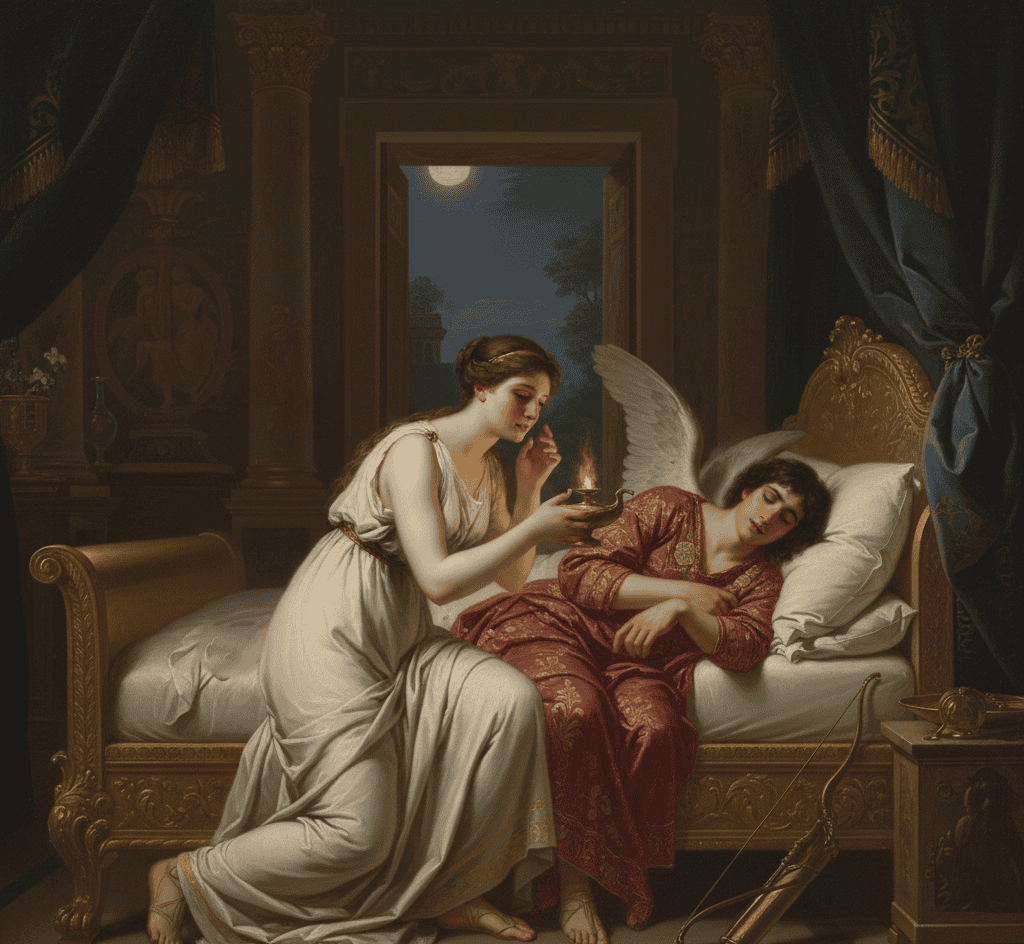Love stories in Greek mythology rarely ended with a happily ever after, especially when the gods decided to interfere.
Mortals who fell in love often faced trials far beyond their control, as divine jealousy, punishment, or whims tore their relationships apart.
The gods were larger than life, and their moods could destroy even the deepest human devotion.
These tales reveal not only the intensity of human love but also how fragile it became under divine scrutiny.
From curses to cruel bargains, the gods left their mark on mortal lovers in ways that turned passion into tragedy.
Here are seven stories of mortal couples who couldn’t escape the meddling of Olympus.
1. Hero And Leander
Hero was a priestess of Aphrodite who lived in a tower by the Hellespont, while Leander lived across the strait.
Each night, Leander swam across the waters to be with her, guided by the light of a lamp she placed in her tower.
Their devotion was powerful, but it also challenged the will of the gods who ruled over sea and fate.
One stormy night, the gods allowed the winds and waves to extinguish Hero’s guiding light. Lost in the darkness, Leander drowned before reaching her.
When Hero found his body on the shore, she leapt from her tower to join him in death. Their tragic end reflected how divine forces could snuff out even the strongest mortal love, leaving behind only the memory of their devotion.
2. Ceyx And Alcyone
Ceyx and Alcyone were deeply in love, known for their tenderness and loyalty to one another. When Ceyx set out to consult the oracle at Delphi, Alcyone begged him not to go by sea.
He promised he would return, but the gods unleashed a storm that wrecked his ship.
Alcyone’s grief was so profound that the gods sent her a dream revealing the truth. In despair, she threw herself into the waves.
Touched by their devotion, the gods finally showed mercy, transforming the couple into kingfishers so they could remain together forever.
Their story became the origin of the phrase “halcyon days,” a brief calm in winter when kingfishers are said to nest.
Yet at its heart, the tale shows how the gods’ power could crush mortal love before reluctantly softening.
3. Orpheus And Eurydice
Few myths capture the heartbreak of divine interference like that of Orpheus and Eurydice.
After Eurydice died from a snake bite, Orpheus used his music to charm even Hades and Persephone, persuading them to release her from the underworld.
They agreed, but with one condition: Orpheus must not look back at her until they reached the surface.
This condition was cruel in its simplicity, and the gods seemed to delight in testing his resolve. Just steps from the light of the living world, Orpheus doubted and turned to look.
Eurydice was pulled back into the shadows forever. Their love was torn apart not by a lack of devotion, but by the gods’ merciless rules that mortals could rarely hope to overcome.
4. Semele And Cadmus
Semele, daughter of Cadmus, was loved by Zeus and became pregnant with Dionysus.
Hera, burning with jealousy, disguised herself as a nurse and convinced Semele to ask Zeus to reveal himself in his full divine form.
Bound by oath, Zeus complied, and the mortal woman was burned to ash by his blazing glory.
Cadmus, her father, was left devastated, and their family was shattered by divine jealousy.
Even though Dionysus survived by being sewn into Zeus’s thigh, Semele’s death symbolized how mortals who drew too close to the gods often paid the ultimate price.
Love in this story was destroyed not by human failing but by Hera’s cruel interference.
5. Alpheus And Arethusa
Arethusa was a mortal maiden who caught the eye of the river god Alpheus. Unlike many mythic romances, this one was not mutual.
Arethusa fled from his pursuit, calling on Artemis for help. The goddess answered by transforming her into a spring, but even this act of rescue was tinged with divine irony.
Alpheus mingled his waters with hers, ensuring that she could never fully escape him. Though not lovers in the truest sense, the myth shows how mortal lives and affections could be twisted by divine power.
What might have been an innocent life was forever reshaped by the relentless pursuit of a god, leaving no room for mortal choice or love freely given.
6. Meleager And Atalanta
Meleager and Atalanta’s bond grew during the famous Calydonian Boar Hunt. Atalanta, the swift-footed huntress, was the first to wound the beast, and Meleager awarded her the prize, defying the protests of his uncles.
Their partnership blossomed into love, but it was doomed by the threads of fate spun by the gods.
Meleager’s life was tied to a log hidden away by his mother. When conflict broke out after the hunt, his mother, enraged at the death of her brothers, threw the log into the fire, ending her son’s life.
Atalanta lost the man she loved, not because of human error, but because divine forces had woven mortality and vengeance into his destiny.
Their love was only a spark in a story smothered by the will of higher powers.
7. Psyche And Cupid
Though Cupid was a god, Psyche was a mortal, and their story reveals just how cruel divine interference could be to lovers who dared to cross boundaries.
Psyche’s beauty rivaled that of Aphrodite, who grew jealous and sent Cupid to make her fall in love with a monster.
Instead, Cupid himself fell in love with her, visiting her each night in secret. Their relationship thrived under one condition: Psyche must never look at him.
Urged by her sisters and her own doubts, she lit a lamp to see his face, and a drop of oil fell on his shoulder, waking him.
Cupid fled, and Psyche was left to wander the earth in torment. Aphrodite forced her through impossible trials before the lovers were finally reunited.
But for much of their tale, their love was shredded by divine jealousy and tests, showing how gods could bend mortals to their whims even when love was genuine.

自出生以来,我一直感觉到自己与神灵有着紧密的联系。作为一名作家和导师,我的使命是帮助他人在最黑暗的时刻找到爱、幸福和内心的力量。

